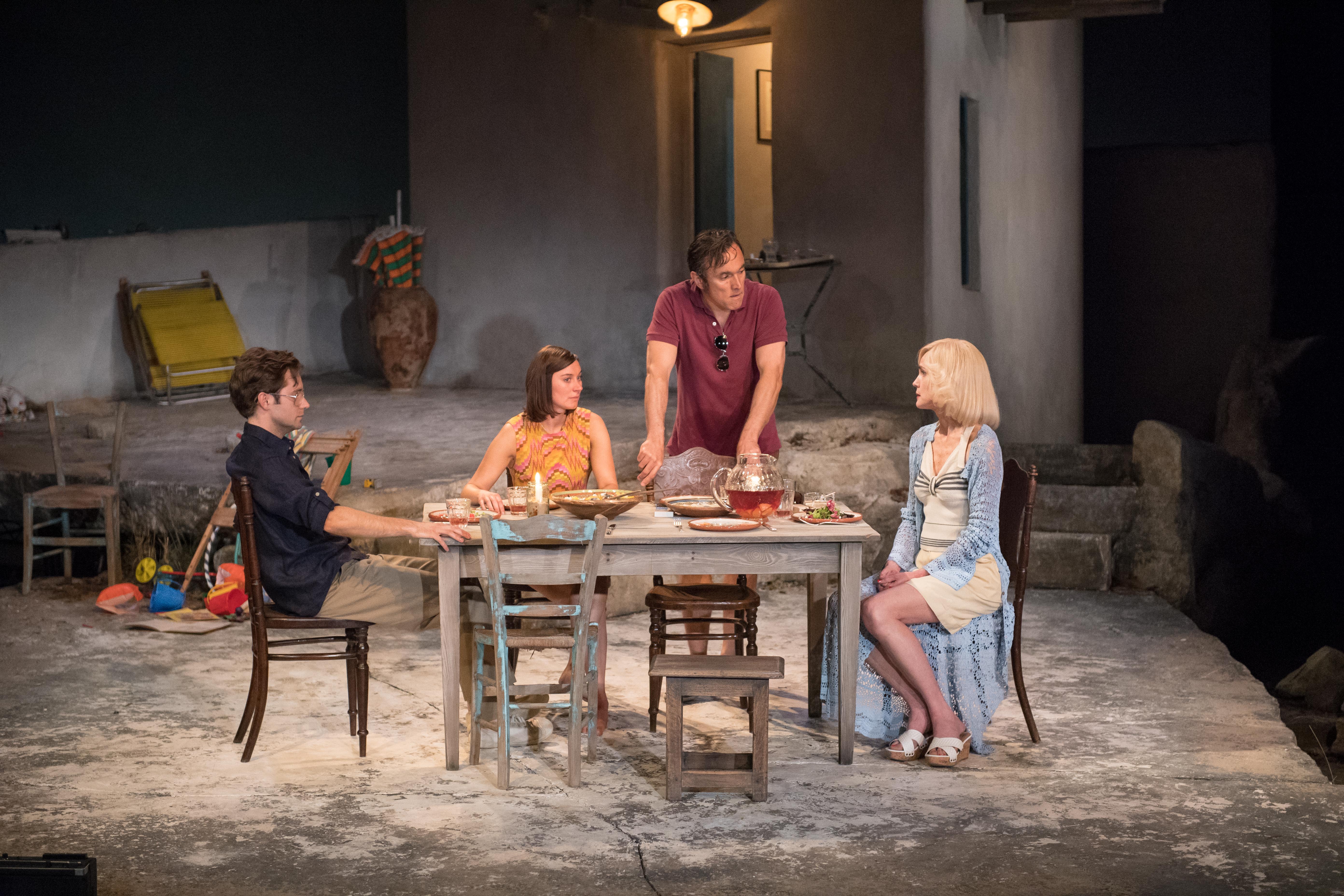Sunset at the Villa Thalia, Dorfman, National Theatre - review: 'Fails to provide fresh purchase on a current crisis'
Playwright Alexi Kaye Campbell's new production on Greece's economic descent lacks immediate substance

Your support helps us to tell the story
From reproductive rights to climate change to Big Tech, The Independent is on the ground when the story is developing. Whether it's investigating the financials of Elon Musk's pro-Trump PAC or producing our latest documentary, 'The A Word', which shines a light on the American women fighting for reproductive rights, we know how important it is to parse out the facts from the messaging.
At such a critical moment in US history, we need reporters on the ground. Your donation allows us to keep sending journalists to speak to both sides of the story.
The Independent is trusted by Americans across the entire political spectrum. And unlike many other quality news outlets, we choose not to lock Americans out of our reporting and analysis with paywalls. We believe quality journalism should be available to everyone, paid for by those who can afford it.
Your support makes all the difference.Sometimes, setting a play in the past is the best way of getting a fresh purchase on a current crisis. But I'm sorry to report that this is not the case with Alexi Kaye Campbell's disappointing new work.
The dramatist was born in Athens to a Greek father and a British mother, and has written that witnessing Greece's spiralling descent into economic chaos, and the despair and determination of the anti-austerity protesters, spurred him on to write Sunset at the Villa Thalia. Campbell also has strong form in bringing the past and present into mutually illuminating juxtapositions. Shuttling back and forth between 1958 and 2008, his best play, The Pride, about the changes of attitude towards homosexuality, eloquently compares and contrasts the terrible consequences of repression with the problems that arise from a certain idea of liberation.
The setting of the new piece is the terrace of a tumbledown peasant cottage on the island of Skiathos. The first act takes place in 1967, on the day that the right-wing military junta seizes control; the second act takes place in 1976, after the fall of the colonels and a couple of years into the transition to democracy.
At the start, the house is being rented by aspiring young English dramatist Theo (Sam Crane) and his wife Charlotte (Pippa Nixon). After a chance meeting, they invite over an American couple – Ben Miles's pushy, speechifying Harvey (who, it emerges, globetrots for the CIA) and ditzy, tippling June (a witty performance by Downton Abbey's Elizabeth McGovern). Harvey persuades the English pair to purchase the cottage from its Greek owners who are on the point of emigrating to Australia and are so poor they will sell it for a song. No sooner have Charlotte's qualms been overcome and the deal clinched than there are radio reports of the military coup in which Harvey has evidently been involved.
By 1976, the idyll is disintegrating and the themes of questionable political intervention and cultural appropriation take on a more sombre hue in Simon Godwin's well-modulated production. Charlotte aborts Harvey's embarrassing attempt to teach her little children Greek dancing because she doesn't want the pain that inspired the rebetiko music on her cassette (the Greek equivalent of the blues) trivialised.
She also harangues Harvey about the US-backed coup against the democratically elected Allende government in Chile, where he has just been working. Miles's fine performance convinces you that Harvey is harrowed by the dreadful deeds to which he has been party, so that people like Theo and Charlotte can “bask in the feeling that [they] are good people”. But the writing fails to give satisfactory substance to his supposed attraction to Charlotte or his platonic crush on Theo that are essential to the plausibility of the story. And setting the piece in these particular years allows Campbell to sidestep – rather than throw fresh light on – the whole issue of the role that the EU and the failure of the euro have played in Greece's present turmoil.
Re-fighting old ideological battles, Sunset at the Villa Thalia contrives not to feel like a play for today.
To August 4; 020 7452 3000
Join our commenting forum
Join thought-provoking conversations, follow other Independent readers and see their replies
Comments